One thing that I find fascinating is the concept of what is the “official” Sailor Moon translation. In North America alone, both the anime and manga have had a whopping three different officially licensed adaptations since hitting this side of the Pacific.1
This, of course, doesn’t even take into account all of the subtitled versions, scanlations, and other fan-established terminology.
So what’s the right answer, and why is it so hard for all these qualified translators to “get it right”?
Today we’re going to take a look at some of the more challenging names to translate in Sailor Moon, and about some of the strategies used to get around them. Be sure to take notes — there might be a test at the end!2
Longtime readers are probably aware of the fact that I’ve already touched on a similar issue before regarding what are some of the difficulties faced when translating Sailor Moon. But while that focused more on some of the issues facing translators in general and how they reared their ugly heads with respect to Sailor Moon, this time I’d like to take a look at some very specific examples that the fandom — and official translations! — have flip-flopped on over the series’ many adaptations.
With that out of the way, let’s get this party started!
A Very Forward Foreword (and Other Wordplay)
While I’d like to avoid getting into a debate here on the merits between translation vs. localization (and where that blurry line is located), one of the greatest travesties to me is just how many of the fun word plays are completely lost in translation. The biggest example of this would be the anime’s many monsters of the day — be they youma, cardians, droids, daimon, lemures, or phages.
Though their names pretty much run the gamut of “awesome puns” to “groan-inducing dad jokes,” I liken the issue to the one faced by Pokemon: the point in the Japanese name was precisely the fact that it was a play on words, not the actual name itself.
While Fushigidane3 may be a totally serviceable name in Japanese, Bulbasaur captures the playful/explanatory essence much better in English.4
Though non-Japanese fans aren’t exactly missing out on a huge amount of information here, Boxy the boxing bokushi (牧師; priest)5 is such a clever pun that I’m always saddened to see it lost.
Personally speaking, I think it would be best to just rename these (mostly) inconsequential characters in dubs and keep their names in subtitles, but I imagine my opinion isn’t exactly the majority here.
The Mystical Legendary Mythical Illusory Silver Crystal
If you want to make a translator cry and/or get a stiff drink right in the middle of her workday, throw the word 幻 (maboroshi)6 into a proper noun. Trust me, it won’t end well.
Sailor Moon’s famed Silver Crystal has been known by fans over the years as the Imperium Silver Crystal, Phantom Silver Crystal, Illusionary Silver Crystal, and Legendary Silver Crystal.7
Except for “Imperium,” none of these translations are really wrong. In fact, they’re all correct in one manner or another, and pick up on a different nuance that the other options lack. Alas, none of the names fully capture the nuance of the Japanese word here.
So what do I think the solution to this problem is?
Well, as many observant readers may have already picked up on, by and large I gloss over the word entirely in most articles on the blog. It’s not (entirely) that I’m lazy, but rather that I find it unnecessarily cumbersome to include the adjective. It’s also a case where, even for a pedant like myself, I feel that it doesn’t really add anything meaningful to the word.
You see, what’s important about the Silver Crystal is that it is silver (representative of the Moon) and is, well, a crystal. And an expensive one at that. It stands in contrast with the Pink Crystal and the Golden Crystal. So while it may be maboroshi, the word doesn’t strike me as all that important.
I’m not saying that this is the right approach, of course. However, I think this is a situation where we can just accept that all translations will be flawed in one way or another, and just agree to settle on the least-flawed one we can find.
Translating Translations
Considering how many non-Japanese words Sailor Moon uses, it’s pretty much a given that some of these words would not be English in origin. There are quite a few of these, in fact.
However, none of them are quite as… contentious among fans than Sailor Mercury’s first attack: ****** Spray.
The Japanese word シャボン (shabon)8 means “soap,” and is probably most familiar to young Japanese viewers in the word シャボン玉 (shabondama; soap bubble). What makes this word unique compared to all of the other attack names Ms. Takeuchi used is that while it’s a word that was borrowed into Japanese, it originates not from some common English word, but from the Portuguese “sabão.”
So what’s an English translator to do?
Well, you could:
- keep it as-is in Japanese (Shabon Spray);
- be faithful to the origins of the word (Sabão Spray); or
- translate it into English (Soap Spray)
While I’m generally against leaving words untranslated (see above), I think this is a rare case where I’d argue it’s the best choice. After all, none of the other Sailor Soldiers’ attack names are rewritten (though, granted, they’re already English), so it seems odd to me to treat Sailor Mercury’s differently.
Interestingly enough, none of the anime’s English adaptations have chosen either of these three options. DiC, ADV, and Viz have all gone with “Bubble.”9
I can see what the translators were doing here. After all, Sailor Mercury is depicted shooting bubbles during the attack animation. However, I think it’s one of the worst choices here in terms of accuracy.
You see, “soap” and “bubble” are different words with different meanings. “Bubble” is an incorrect translation for “soap.” If we’re concerned about being more authentic to the actual image on screen, then we should also translate Sailor Jupiter’s attack as “Supreme Lightning,” since she’s not actually shooting thunder.
Okay, I guess I’m back to being pedantic.
Is there anything I missed that you think should be added to this list? Perhaps the Amazones Quartetto vs. Amazoness Quartet debate? Sailor Saturn’s Death Reborn/Ribbon Revolution debacle? Something else I haven’t even thought of??
Let me know what you think about this and other issues about Sailor Moon in translation down below, I’d love to hear what other people’s opinions on this. I’m especially interested in how some of these issues were addressed in other languages!
References:
- Yes, I’m counting the DiC translation as an “official” adaptation. While it may have taken liberties, it was official at that time. ↩
- There is no test at the end. But there is a monster at the end of this book; see Monster at the End of This Book, The (Sesame Street) ↩
- Read alternatively as 不思議だね (“strange, isn’t it”) or 不思議種 (“mysterious seed”) ↩
- Incidentally, Bulbasaur is absolutely the best Pokemon ever. I will not entertain any arguments against this. ↩
- See 牧師 (Jisho.org) ↩
- See 幻 (Jisho.org) ↩
- See https://wikimoon.org/index.php/Silver_Crystal ↩
- See シャボン (Jisho.org) ↩
- DiC: Mercury Bubble Blast; ADV/Viz: Bubble Spray ↩
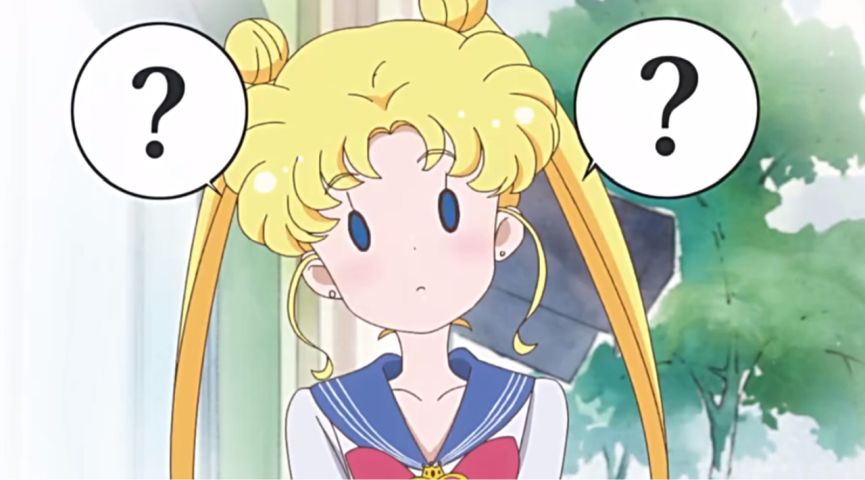
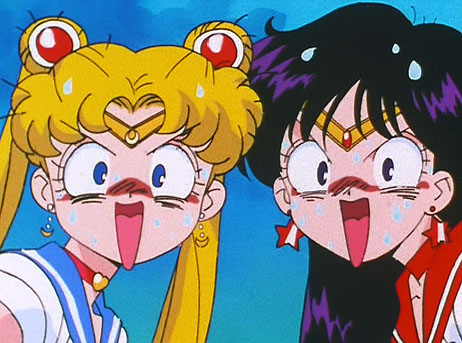
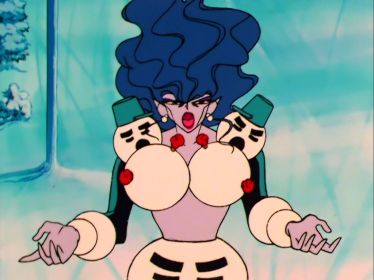
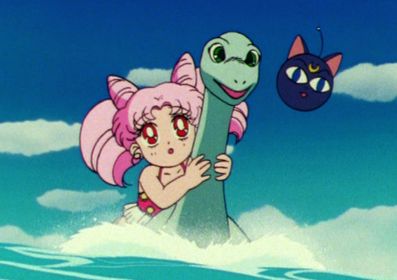
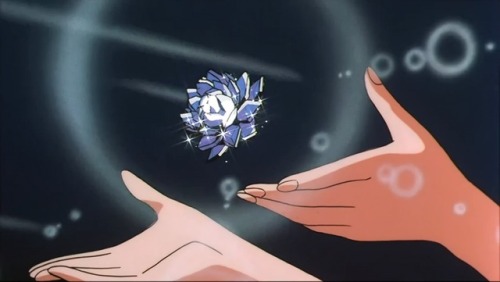
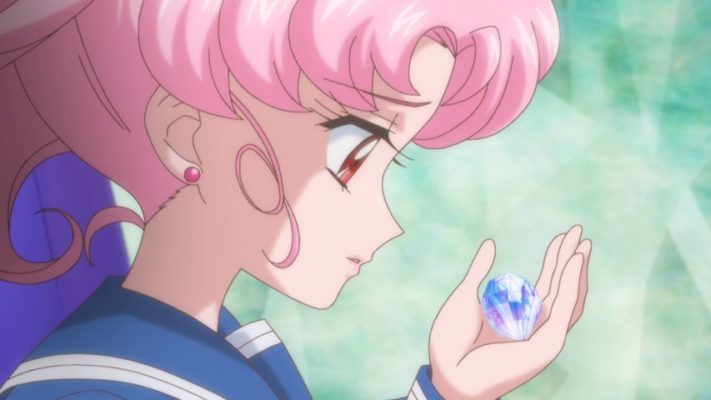
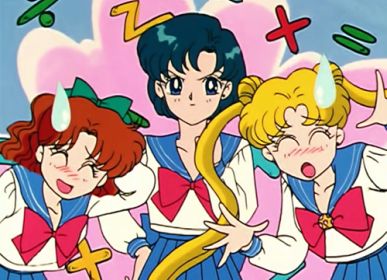
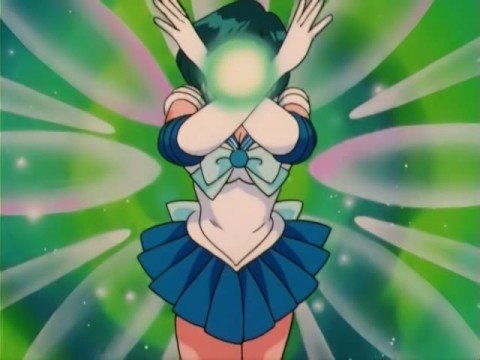
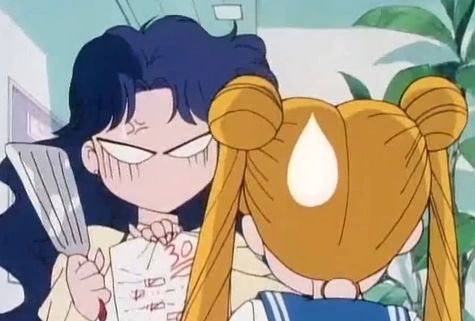

I’d love to hear you weigh in on the brainwashed/evil asteroid Senshi’s “proper” collective name in English (or at least which one you’d go with if you were to translate the series).
Honestly, I think that the worst Lost In Translation moment are Ayakashi sisters´ names.
I’ve discussed it before, and the Ayakashi sisters are definitely an annoying challenge to deal with.
As for the sisters’ individual names, I still find it fascinating how long the Beruche vs. Berthier debate went on.
LOL, I feel bad that I didn’t really get the internet until it was too late, so I have no memory of all these debates. How serious and severe were they?
I know she is based on Berthierite, but there is a mineral called Brucite that has an icy blue tint to it. I wonder if it had anything to do with them thinking it should be translated as Beruche?
It’s probably simple that, in Japanese, her name is written as ベルチェ (Be ru che, beruche). So probably it was just a case where the initial translator had no clue what it could be referring to and just translated it as-written on screen. Happens to the best of us!
Sailor Mercury likes to make sure those Youma are squeaky clean before Sailor Moon kills them.
I was disappointed, but not surprised when Viz chose bubble instead of shabon.
I think it could also stem from the fans who argue it should be spelled as sabao instead of shabon (even though it’s a borrowed word).
To me, it just sounds boring and they might as well have translated spray to something else as well.
I mean, even if it is a mostly hated dub, Bubbles Blast is kind of iconic and sounds a bit better.
I agree with you, the word should be left as shabon/sabao. It’s not like this new dub is for Cartoon Network, most people watching it will know what it means. Plus, they even translated the subtitles as “bubble”!
It just sounds so… weird, you know? Almost every single attack phrase in the show is the same in both English and Japanese and you can match up with they’re saying on screen with the subtitles. Changing it to “Bubbles” would be like changing Usagi to “Rabbit,” to me. There are some instances where it just makes sense to leave it alone.
Especially since, y’know, “bubbles” and “soap” aren’t exactly the same thing… >_>
I had first read Saturn’s attack as “reborn” way back when so it’s stuck with me ever since.
As for Mercury, or almost all the girls for that matter, I feel that their attack names are all poorly worded, whether in Japanese or English.
Mars gets a pass though. Her attack names are the least groan-inducing.
To be fair, they’re kind of just “cool-sounding English” words thrown together into a blender. I agree that they may sound cool to a Japanese audience for 5-9 year olds, but don’t exactly hold up.
If all the attack names were in Japanese, then translating them would make sense. There wouldn’t be any specific significance from the language used. It’s Japanese because the series is written in Japanese. However, Sailor Moon specifically uses foreign words for the majority of the attack names. That does create a significance in the choice of words used. Sure, the reason can be ‘it sounds cool’ but it’s still a significance I think should be respected in the translation into any language.
I agree that monster names should have changed to try and encapsulate the wordplay of the original. You used a great example with Pokemon names.
That’s why this whole “Bubble Spray” translation for Mercury (and only Mercury) really confuses me. In that case, are we also going to translate Eternal Sailor Moon’s Tiare (technically the French word for tiara) as well? I don’t know, but I think there’s a strong case here to either leave it alone, or use the Portuguese word.
Excellent post!
I’d really like to know more about the whole Ribbon Revolution thing… I saw it many years ago and thought it looked weird… why ribbon? I don’t understand Japanese so I was left wondering. Would love to hear (or read, actually) your thoughts!
It’s likely meant to be a wordplay in the manga, kind of like the spelling variation Naoko did with Queen Beryl vs. Chrysoberyl. So it’s probably meant to be “Reborn” but is written similar to Ribbon to add a little flair. Though admittedly, I haven’t taken a close look at the manga for this one yet.
Very interesting, I didn’t know that! Thanks!
Horry Glail
One of the SNES fighters has Sailor Saturn use the attack ‘Death Ribbon Revolution’ (デス・リボン・レボリューション), spelled almost identically to ‘Death Reborn Revolution’. (デス・リボーン・レボリューション). So Saturn does technically have an attack with each name, even if one isn’t canon.
But of course, it’s another damn pun. ‘Reborn’ (リボン) and ‘Ribbon’ (リボーン) are spelled very similarly. During ‘Death Reborn Revolution’, Saturn summons ribbons that she attacks the enemy with. The attack is made of deadly ribbons.
I remember in Another Story she used Ribbon Revolution and we saw ribbons. But in the manga, her world-renowned attack just involved her dropping the Glaive, not saying anything, right?
And she had a separate attack called “Reborn,” but it had kind of a ribbon visual, so it confused everyone, including the game makers?
My guess about the English versions using “Bubble” for Mercury’s attack is that it works better for dubbing. “Soap” is distinctly shorter and might throw the dialogue out of sync with the animation. Though ADV’s adaptation was subtitle-only, wasn’t it? Maybe they wanted to keep consistency with an established name?
That’s an interesting theory on trying to match the mouth movements. But to be fair, most English sentences are simply longer than Japanese to begin with, so it’s kind of a lost cause to worry about that across a 23 minute episode… o_O
They could have always used “Shampoo” if they wanted to match syllables. I’m sure they didn’t because it’s linked to hair products and may even take it further than bubble.
But there is that one joke with Mercury’s attack actually being shampoo from Naoko Takeuchi…
Indeed, there is!
What Were Naoko’s Sailor Moon Comedy Comics About?
/shamelessplug
I think we need an entire article article about fannon terme that were never used in the real media. Like “Generals.” And how “Inner Senshi” and “Outer Srnshi” are fannon terms..
And really I wish you could do an Otaku Senshi article, but you might need to buy myself, Sarah Forde, and a few others some wine.
And then there’s Sailor Saturn being translated as Sailor Satan in the first volume of the Polish edition of the manga that she appears in…
=D That’s always a favorite of mine. Even one of the Japanese musicals wrote it as Sailor Satan.
In the Philippines, The Maboroshi no Silver Crystal is called “Holy Silver Crystal” while Sailor Mercury’s attack was originally called “Bubble Spray”. There is inconsistency though coz sometimes her attack is called “Sabon Spray” and we find it ridiculous because Sabon means Soap in Filipino. Mixing English-Filipino words in attack names is very uncommon.
In russian dub, Sailor Mercury’s attack is literally called “Soap Rain” (there’s no russian analogue for the word “spray”). And as I vaguely remember from my childhood, it was called like that in the 90s too.
I was actually surprised to learn about the dic dub name changes not so long ago. Things like “Darien Shields” etc. I feel a bit strange when asian names are adapted in a more familiar manner for western audience. Still happens a lot.
I know this is late, but I feel like you may have answered the “Bubble” thing. You said that Japanese kids would have been most familiar to “Shabon” as it relates to “soap bubble”. I think that’s probably why they translated it to “bubble”, so kids would know Mercury isn’t spraying soap itself, but instead the bubbles. Personally I grew up watching her do “bubble blast” so I’m partial to that attack name over “bubble spray” lol
It seems like such a silly, trivial thing. =D But actually, there’s a lot to such a small translation issue.
I figured Fire Soul changing to Mars Fire Ignite was so that parents wouldn’t complain about religious propaganda…. But they kept the Marine Cathedral.
In the german dub of the original anime the translation is “Der Heilige Silberkristall” (The Holy Silver Crystal), in Sailor Moon Crystal/Eternal its called “Der Magische Silberkristall” (The Magical Silver Crystal).
In the translation for the German dubbed version of the 90’s anime, they were very meticulous in translating almost all English terms into German. Also transformation lines etc. (“Macht der Mondnebel macht auf!”).
Even the names of the Sailor Senshi have been translated as the planets are called in German. For example, Sailor Mercury became -> “Sailor Merkur” and so on. The same applies to the attacks, although the translators sometimes simply invented new terms that sound simpler. There are so many that it would be too long to list them all here. But regarding the example of Ami’s attack: This became “Seifenblasen” (soap bublles).
I think the only English terms that survived in the German version were “Sailor” and “(Super) Sailor Moon”. I would love to know why they didn’t want to keep the English terms. Like in Japan, in Germany English words sounded “cooler” at the time, so they would have had the same effect as on the Japanese audience.
In addition, Usagi was translated to Bunny and Ami and Rei are pronounced like “Amy” and “Ray” in the German dub. It’s all so strange and doesn’t form a consistent picture.